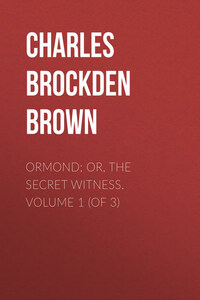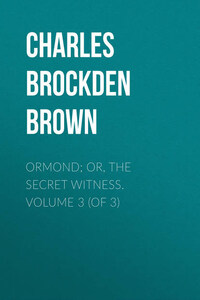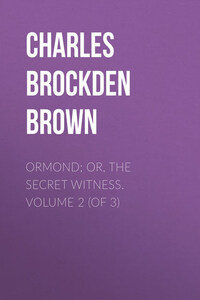To I.E. Rosenberg.
You are anxious to obtain some knowledge of the history of Constantia Dudley. I am well acquainted with your motives, and allow that they justify your curiosity. I am willing to the utmost of my power to comply with your request, and will now dedicate what leisure I have to the composition of her story.
My narrative will have little of that merit which flows from unity of design. You are desirous of hearing an authentic and not a fictitious tale. It will therefore be my duty to relate events in no artificial or elaborate order, and without that harmonious congruity and luminous amplification, which might justly be displayed in a tale flowing merely from invention. It will be little more than a biographical sketch, in which the facts are distributed and amplified, not as a poetical taste would prescribe, but as the materials afforded me, sometimes abundant and sometimes scanty, would permit.
Constantia, like all the beings made known to us, not by fancy, but experience, has numerous defects. You will readily perceive that her tale is told by her friend; but I hope you will not discover many or glaring proofs of a disposition to extenuate her errors or falsify her character.
Ormond will perhaps appear to you a contradictory or unintelligible being. I pretend not to the infallibility of inspiration. He is not a creature of fancy. It was not prudent to unfold all the means by which I gained a knowledge of his actions; but these means, though singularly fortunate and accurate, could not be unerring and complete. I have shown him to you as he appeared on different occasions, and at successive periods to me. This is all that you will demand from a faithful biographer.
If you were not deeply interested in the fate of my friend, yet my undertaking will not be useless, inasmuch as it will introduce you to scenes to which you have been hitherto a stranger. The modes of life, the influence of public events upon the character and happiness of individuals in America, are new to you. The distinctions of birth, and the artificial degrees of esteem or contempt which connect themselves with different professions and ranks in your native country, are but little known among us. Society and manners constitute your favourite study, and I am willing to believe that my relation will supply you with knowledge, on these heads, not to be otherwise obtained. If these details be in that respect unsatisfactory, all that I can add, is my counsel to go and examine for yourself.
S.C.
Germany
Stephen Dudley was a native of New York. He was educated to the profession of a painter. His father's trade was that of an apothecary. But this son, manifesting an attachment to the pencil, he was resolved that it should be gratified. For this end Stephen was sent at an early age to Europe, and not only enjoyed the instructions of Fuzeli and Bartolozzi, but spent a considerable period in Italy, in studying the Augustan and Medicean monuments. It was intended that he should practise his art in his native city, but the young man, though reconciled to this scheme by deference to paternal authority, and by a sense of its propriety, was willing as long as possible to postpone it. The liberality of his father relieved him from all pecuniary cares. His whole time was devoted to the improvement of his skill in his favourite art, and the enriching of his mind with every valuable accomplishment. He was endowed with a comprehensive genius and indefatigable industry. His progress was proportionably rapid, and he passed his time without much regard to futurity, being too well satisfied with the present to anticipate a change. A change however was unavoidable, and he was obliged at length to pay a reluctant obedience to his father's repeated summons. The death of his wife had rendered his society still more necessary to the old gentleman.
He married before his return. The woman whom he had selected was an unportioned orphan, and was recommended merely by her moral qualities. These, however, were eminent, and secured to her, till the end of her life, the affection of her husband. Though painting was capable of fully gratifying his taste as matter of amusement, he quickly found that, in his new situation, it would not answer the ends of a profession. His father supported himself by the profits of his shop, but with all his industry he could do no more than procure a subsistence for himself and his son.
Till his father's death young Dudley attached himself to painting. His gains were slender, but he loved the art, and his father's profession rendered his own exertions in a great degree superfluous. The death of the elder Dudley introduced an important change in his situation. It thenceforth became necessary to strike into some new path, to deny himself the indulgence of his inclinations, and regulate his future exertions by a view to nothing but gain. There was little room for choice. His habits had disqualified him for mechanical employments. He could not stoop to the imaginary indignity which attended them, nor spare the time necessary to obtain the requisite degree of skill. His father died in possession of some stock, and a sufficient portion of credit to supply its annual decays. He lived at what they call a










